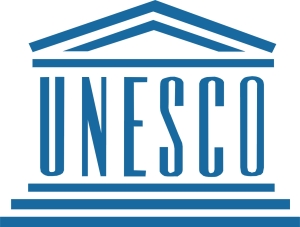Updated
Commentary – Gender Equity: Morocco Looks at Women in the Media – C. Dearing Scott
MACP, by Caitlin Dearing Scott (Washington, DC, June 25, 2013) — Even in the US, where women have had the right to vote for nearly one hundred years, the process of securing full equality continues. Consider, for example, the Lilly Ledbetter Fair Pay Act, which Congress passed and President Barack Obama signed in 2009. Changing attitudes takes time and often proves much more difficult than implementing regulatory measures. Media has an important and immediate role to play, as it can either serve to reinforce traditional roles or can be used as a tool for the promotion of women’s and human rights.
Morocco understands that, and has worked to institutionalize gender equality in the fields of media and communications for nearly a decade. The country—which ushered in a new constitution in 2011 that guarantees women the same rights as men—is paying special attention to the role of women in the media, because as stated in a May report released by the UNESCO Field Office to Algeria, Mauritania, Morocco and Tunisia, “In the debate about inequality between men and women, media plays an important role as it contributes to influencing and shaping people’s perceptions and actions on their attitudes and behavior especially in relations between men and women.”
 Morocco’s Medium-Term Program (PMT), launched in 2004, is built around three strategic platforms: “strengthening the institutional capacity of the department of communications and its institutional partners to reflect gender equality in their practices and their structure; strengthening the capacity of pertinent actors in the communications sector in order to improve women’s image in the media; and promoting gender equality in media institutions and women’s access to decision making.”
Morocco’s Medium-Term Program (PMT), launched in 2004, is built around three strategic platforms: “strengthening the institutional capacity of the department of communications and its institutional partners to reflect gender equality in their practices and their structure; strengthening the capacity of pertinent actors in the communications sector in order to improve women’s image in the media; and promoting gender equality in media institutions and women’s access to decision making.”
Specific efforts such as the PMT have been accompanied by other regulatory and programmatic measures that have improved women’s rights more broadly, namely the 2011 Constitution (which expanded to 60 the number of seats in Parliament designated for women), reform of the penal and labor codes, reform of the family and nationality codes, and the 2006 launch of a National Strategy for Equity and Equality between the Sexes (SNEES), which aims to institutionalize equity and equality in politics and sector-specific development programs.
Despite these initiatives, the country still faces ongoing equality challenges in the communications and media sectors, and thus in the country more broadly. Why, despite serious judicial, regulatory, and political efforts, is this the case?
According to the UNESCO report, it’s a question of education, and changing mentalities and instilling the principal of equality in the mindset of media professionals. The UNESCO report calls on the media to develop programming to strengthen the promotion of equal rights.
The ongoing dialogue on a National Charter on Diversity and the Media might help the Moroccan media do just that. The charter calls for respect for diversity in all its forms and non-discrimination on the basis of race, religion, and gender. It is just one part of a broader project on inclusive, responsible, and independent media in Morocco funded by the European Commission in partnership with the Moroccan Center for Studies and Research in Human Rights and the Media and the Media Diversity Institute. By promoting diversity in program content and among media professionals, the broader project aims to provide the media with the tools to improve their professional responsibility and coverage of diversity. The hope is that it will also provide civil society actors with the tools to engage with and influence political debate and promote human rights and democratic reforms, thus using the media to reinforce human rights and vice-versa.
Stay tuned.
Caitlin Dearing Scott is Senior Vice President of Research, Projects and Programs.
